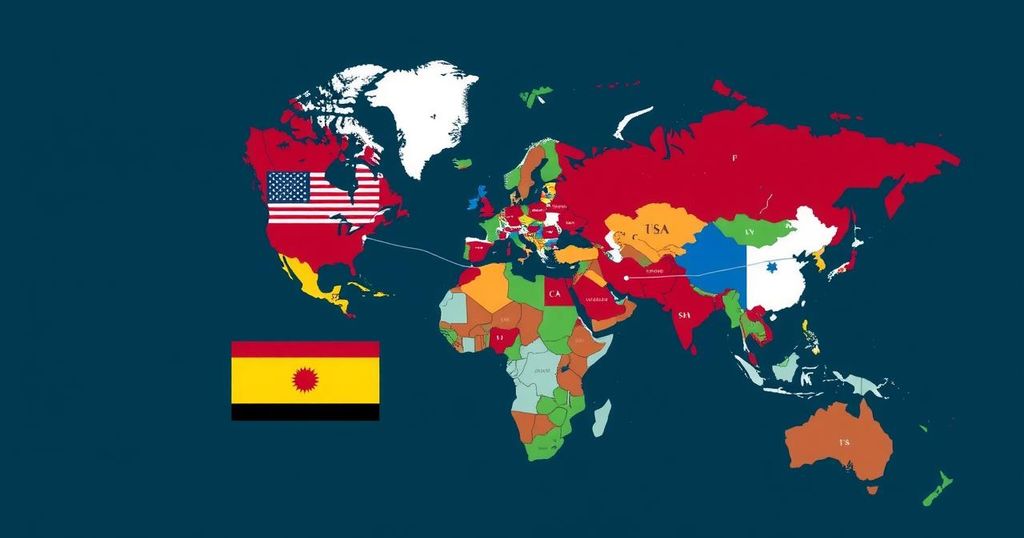Politics
AFGHANISTAN, ASIA, BIDEN, CUBA, DEMOCRAT, DONALD TRUMP, EUROPE, FLORIDA, HAITI, HOMELAND SECURITY, KAMAL, KAMALA HARRIS, LEGISLATION, MEXICO, NAREE KETUDAT, NATIONAL SECURITY, NICARAGUA, NORTH AMERICA, PHILIPPINES, POLITICS, PRESIDENTIAL ELECTION 2024, PRESIDENTIAL ELECTIONS, SOUTH AMERICA, SOUTH FLORIDA, U. S, UKRAINE, UNITED STATES, VENEZUELA, WASHINGTON, WLRN
Isaac Bennett
0 Comments
Biden Administration Ends Humanitarian Parole Program for Migrants
The Biden administration will not extend the humanitarian parole program for migrants from Venezuela, Haiti, Cuba, and Nicaragua, which provided legal entry to the U.S. since 2022. The decision, impacting over 500,000 individuals, mandates current participants to seek other legal statuses or leave the country by the end of the two-year period. This move coincides with the approaching 2024 presidential election and reflects a tougher stance on immigration.
The Biden administration has announced that it will not be extending a two-year humanitarian parole program that allowed migrants from Venezuela, Haiti, Cuba, and Nicaragua to enter the United States provided they arrived by airplane and had sponsorship. Initiated in 2022, this program aimed to provide a legal pathway for migrants amidst increased illegal crossings at the U.S.-Mexico border. It later included the aforementioned nationalities due to their high numbers attempting to breach the border. Under the program, which allowed individuals to reside and work in the U.S. for two years, approximately 214,000 Haitians, 117,000 Venezuelans, 111,000 Cubans, and 96,000 Nicaraguans have settled in the country. With the approach of the 2024 presidential election, the decision aligns with the administration’s shift toward a more stringent immigration policy, as Vice President Kamala Harris seeks to present a tougher stance. Concurrently, former President Donald Trump has criticized the administration’s immigration policies, particularly focusing on misinformation relating to migrants. Following the expiration of the two-year program, current participants must either apply for a different legal status, depart the U.S., or face deportation, although there remain various pathways, such as Temporary Protected Status for several nationalities affected by extreme conditions in their home countries. It is important to note that new migrants arriving at the border still have the opportunity to apply for the program, which does not impact individuals seeking asylum from Afghanistan or Ukraine.
The humanitarian parole program was developed by the Biden administration to address the increasing number of migrants at the U.S.-Mexico border while providing a legal alternative for entry. Established in 2022 with Venezuelan migrants in mind, the program was later expanded to include Cuban, Haitian, and Nicaraguan migrants. The policy allowed qualifying individuals to live and work legally in the U.S. for two years as they sought more permanent immigration solutions. The recent decision to end the program has sparked significant discussion, particularly regarding its implications for communities in South Florida, which hosts the largest populations of these migrant nationalities. Additionally, the political context surrounding immigration policy in the United States remains contentious, with competing narratives emerging as the presidential election approaches.
In conclusion, the Biden administration’s decision not to extend the humanitarian parole program for migrants from Venezuela, Haiti, Cuba, and Nicaragua has significant ramifications for the affected communities and the broader discourse on immigration policy in the United States. While the program provided essential avenues for many to legally reside and work in the U.S., its expiration necessitates individuals to explore alternative legal statuses or risk deportation. As the political landscape shifts ahead of the 2024 presidential election, the implications of this decision will likely influence ongoing debates about immigration reform.
Original Source: www.wlrn.org




Post Comment